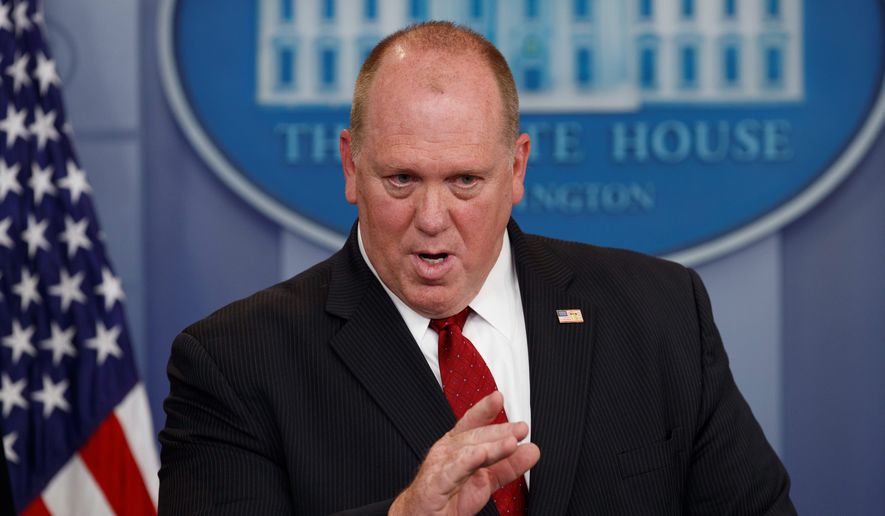More than a dozen Florida sheriffs announced a deal Wednesday that will allow them to hold illegal immigrants wanted by the federal government for deportation, in a key test case for cities and countries eager to cooperate but worried about legal problems associated with helping the Trump administration.
The deal struck between 17 Florida sheriffs and U.S. Immigration and Customs Enforcement would allow local authorities to hold illegal immigrants even beyond the time they normally would have to be released based on state or local cases.
The agreement is meant to answer a series of court rulings that had said holding migrants beyond their regular release time violated the Fourth Amendment.
Pinellas County Sheriff Bob Gualtieri, who spearheaded the new agreement, said the courts objected to sheriffs making their own decisions based on a civil detainer request. Under the new arrangement, the migrants will be booked in under federal auspices.
“We are not making that decision. ICE is making the decision within its authority. We are acting under color of federal law. We are holding these people after ICE has made the decision because they have probable cause, they have a warrant and they are booking them into our jail,” Sheriff Gualtieri said.
ICE will reimburse the localities for holding the migrants, reinforcing the argument that it’s a federal hold, not a local decision.
The sheriffs said the agreement is no different than what they do for the U.S. Marshals Service, receiving people into their jails on federal say-so. Every person ICE wants held must be booked under form known as the I-203, which is the official federal booking order.
ICE said the Florida agreement is a test to see if things run smoothly. The hope is to strike similar deals with other jurisdictions across the country over the next year.
“This agreement will keep the citizens of Florida a lot safer,” said Thomas D. Homan, acting director of ICE. “This is a big day.”
The Obama administration opposed sanctuary cities and tried to use a cooperative approach to get them to drop their policies, with limited success.
President Trump has taken a more combative approach, sparking a massive backlash with communities rushing to declare themselves sanctuaries and vowing to resist deportation efforts.
Immigrant-rights advocates urged sanctuaries to continue to resist the Trump administration, and warned those who do cooperate could face legal problems.
“This plan is simply a repackaging of failed detainer policies that leaves sheriffs and jails on the hook for civil rights violations,” said Omar Jadwat, director of the ACLU’s immigrant rights project. “Nothing announced today addresses the basic legal problems with detainers that courts have repeatedly recognized, and this is yet another example of the Trump administration running roughshod over the law in pursuit of its mass deportation agenda.”
Sheriff Gualtieri said there’s room for a debate about immigration policy, but said there should be nothing controversial about going after migrants who ended up in the criminal justice system, and particularly repeat-illegal immigrants.
“They keep coming back, and as long as we have porous borders we’re going to continue having this problem,” the sheriff said.
The Florida counties that are part of the initial test-run are: Pinellas, Lee, Manatee, Bay, Walton, Hernando, Brevard, Polk, Indian River, Charlotte, Monroe, Sarasota, Columbia, Santa Rosa, Suwannee, Hillsborough and Pasco.
• Stephen Dinan can be reached at sdinan@washingtontimes.com.




Please read our comment policy before commenting.